Hotels are making inspired changes in their F&B offerings everywhere from the restaurant to the minibar. They’re growing it themselves, touting their specialties and making sure that they have a sustainable approach. As part of HOTELS’ 2017 guide to what’s hot in categories like design, wellness, technology, sales and marketing, and development, we present what’s new and what’s hot in F&B.
What is trending these days? Read on and get inspired – and stay tuned for more.
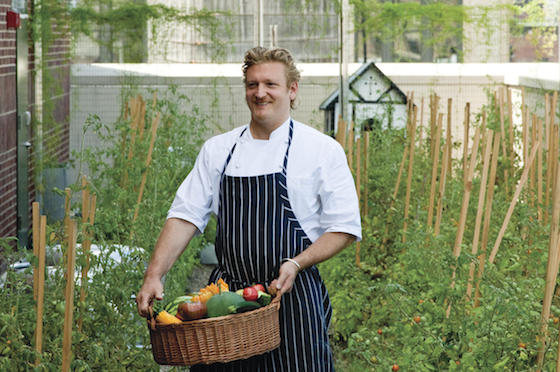
Reaping what you sow
Words like fresh, crisp and organic can be used with confidence and to the delight of guests searching for value without a price tag by hotels planting and harvesting their own gardens.
Rooftops, back field acreage and even hydroponic gardens are cropping up because it is relatively easy and even keeps costs under control, especially for more remote resorts that have trouble sourcing good produce in a timely manner.
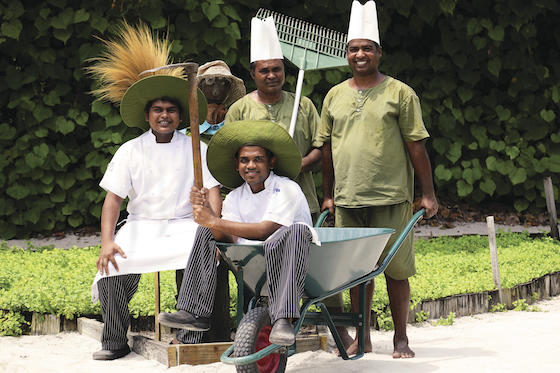
Six Senses Laamu, Maldives, features an organic garden where 40 different herbs, vegetables, salad leaves and micro-herbs are grown. The hotel is 12 hours from Male by boat, so any fresh herb or salad item would not make the journey.
The culinary team has partnered with gardeners to create a menu based on fresh and organic ingredients, which is served by the pool at Sip Sip. The menu features a different starter, salad, pizza and dessert each day.
The garden team, which delivers product to four kitchens twice a day, makes its own food compost and uses recycled water to minimize water usage.
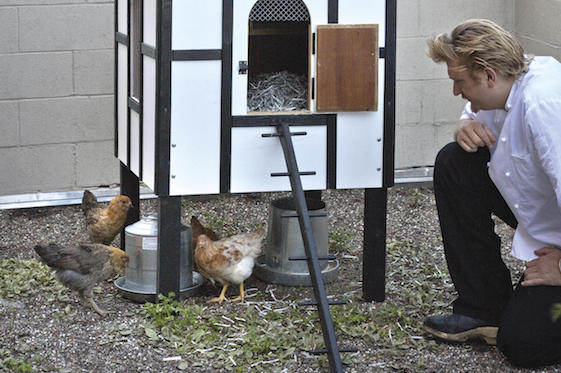
Urban gardens are just as sustainable, with Firmdale’s Crosby Street hotel in New York City planting early for cold-weather crops and later for summer and fall harvests. The first planting: several varieties of lettuces, radishes, beets, Swiss chard and pansies. The later planting is the larger of the two and includes sweet basil, oregano and sage, as well as peppers, tomatoes, peas and beans. In addition, there are several perennials: strawberries, blueberries, raspberries, echinacea, mint and hops.
Crosby Street also has four chickens that live on the roof during the warm months, their habitat shaded by the summer sun with hops. Kitchen stewards care for the chickens and collect eggs on a daily basis for the restaurant.
Written by Jeff Weinstein
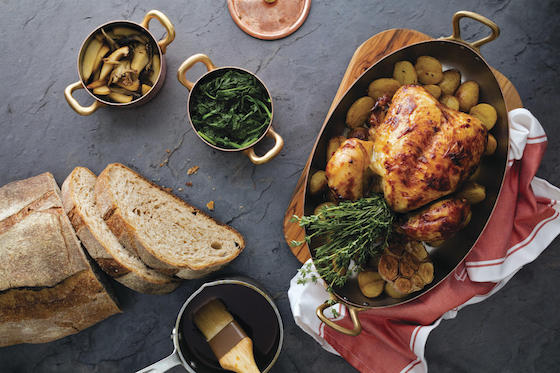
Signature stars
A single outstanding dish can establish a restaurant’s identity. At Daniel Boulud’s Cafe Boulud in Toronto’s Four Seasons Hotel, rotisserie chicken is king. Staying true to Boulud’s Lyonnaise heritage and rooted in what he calls “French culinary DNA,” each chicken takes two days to make. It’s brined and then dried before spending an hour over open rotisserie flames. More than 250 are sold every week.
The Peking duck at Made in China at the Grand Hyatt in Beijing is carved tableside and served with pancakes and classic condiments. A single chef manages preparing the 40 ducks sold daily.
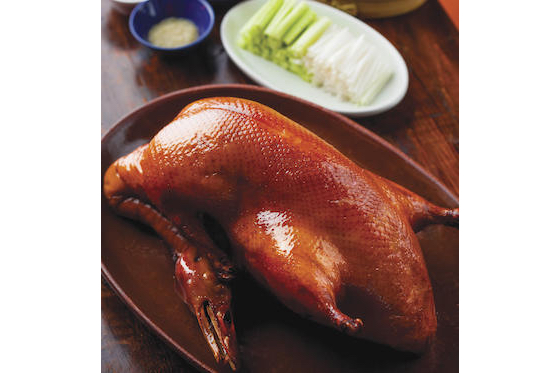
At Hyatt Regency Hangzhou’s 28 Hubin Road, the signature dish is Dong Po Rou: braised pork belly, smoked bamboo shoots and chestnut pancakes. About 82% of diners order it, requiring 40 servings every day.
“People in Asia tend to seek out restaurants that are famous for certain dishes and go there specifically for that dish,” says David King, culinary director at the Sheraton Grand Macao Hotel’s Xin Hot Pot, which serves the traditional dish and sold 2,170 of them during a week in March. One team looks after the soup bases; a separate one deals with ingredients.
In New York City, April Bloomfield and Ken Friedman have opened single-theme concepts in two hotels. The John Dory Oyster Bar draws local bivalve lovers as well as Ace Hotel guests, and Salvation Taco, a hip taqueria within the Pod 39 Hotel.
Written by Beverly Stephen
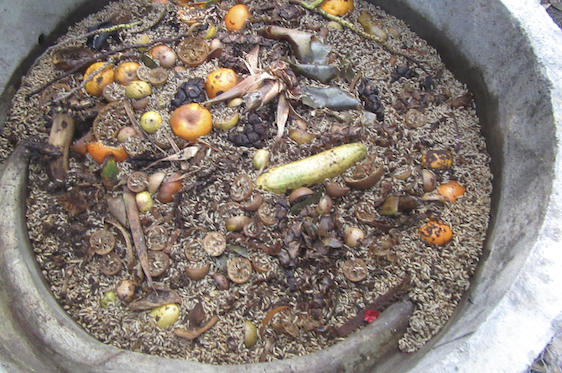
Circle of (compost) life
Inaccessibility plus sustainability breeds ingenuity – and a lot of hungry larvae, at least at Nikoi Island, a resort 85 km off Singapore.
The property, comprising 15 beach houses and owned by private investors, has taken “reduce, reuse, recycle” to a new level with a self-contained composting system. The larvae of black soldier flies consume waste from the resort’s bar, dining room and kitchen within a concrete bin and convert it into castings; the mature flies lay their eggs in its lid; and a collecting box allows larvae to be used for chicken and fish feed. The larvae live for weeks on gourmet leftovers, while the flies themselves die – and become part of the compost – within a few days.
Other island properties are taking radical reduction steps: Alila Hotels & Resorts last year implemented a zero-waste policy across its four hotels in Bali, including composting, an organic garden and waste conversion. Thecompany says the properties on are track to be zero-waste by July.
Written by Barbara Bohn
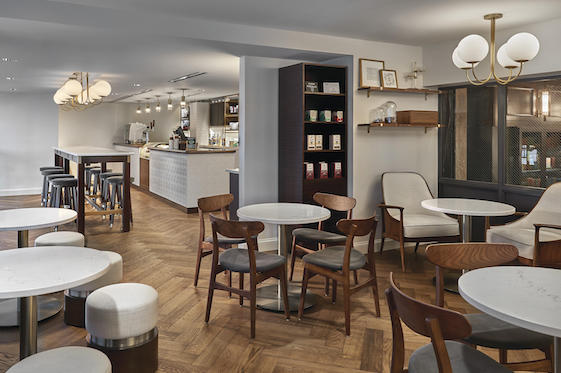
Brewing up success
In 2016, Arbor Lodging Partners CEO Vamsi Bonthala sunk US$20 million into restoring Hotel Phillips in Kansas City, Missouri. As part of that renovation, the group converted a space that faced out to the street into a coffee bar – Kilo Charlie – derived from the radio call signals for “K” and “C.”
The bar, the first in the city to serve Philadelphia-based La Colombe coffee, has nitro and draft lattes and encourages guests to break out from the loneliness of their room (and its accompanying single-serve pods) and bee-line to the bar for a more communal experience.
“We think that creates a certain type of energy that is more real, and that type of energy is what hotel guests today want,” Bonthala says. “At the end of the day, we wanted to make a place that felt great in just a really comfortable setting, and I think we’ve created that.”
Written by Chloe Riley
